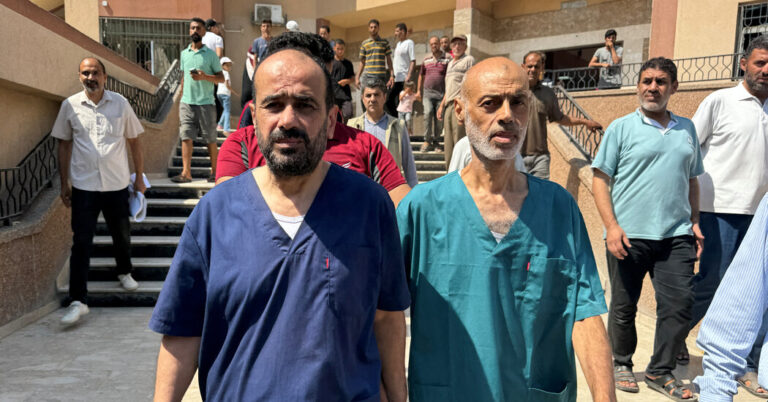The United Nations’ top relief official, Martin Griffiths, resigned Sunday, adding a new layer of uncertainty to efforts to deliver food, fuel and other supplies to Gaza, where nearly nine months of war brought a series of disastrous threats to the Gaza Strip. civilian population, including catastrophic famine.
UN Secretary-General António Guterres has not named a permanent replacement for Mr. Griffiths, whose departure from the UN Office for the Coordination of Humanitarian Affairs, for health reasons, was announced in March.
“To my fellow humanitarians, it has been an honour to lead, represent and learn from you,” Mr Griffiths wrote in a social media post on Sunday. “Your work is one of the most important in the world: bringing hope, compassion, survival and humanity to people in their darkest hours. »
But relief efforts in Gaza have fallen far short of meeting the needs of the densely populated, closed enclave where most of the roughly 2.2 million people have been displaced. In May, Israel closed the Kerem Shalom crossing after a Hamas attack killed four soldiers in the area, and then staged an incursion that closed the Rafah crossing along the border with Egypt. U.N. officials have effectively said blocked the two main arteries for help.
For most of the past month, aid deliveries to Gaza have slowed to a near halt. Hopes of restarting them via a temporary U.S.-built pier have been largely thwarted, partly because of weather conditions that have repeatedly forced the pier to be moved away from the Gaza coast, and partly because of the difficulty of distributing the aid once it arrives.
The main UN agency for the Palestinians, UNRWA, said earlier this month that Gaza had become the deadliest place in the world for aid workers, with at least 250 killed since Hamas’ attack on Israel on October 7 sparked the Gaza war and a humanitarian crisis. UN humanitarian agencies have demanded that the Israeli authorities do more to protect aid workers in the Gaza Strip and ensure aid reaches those who need it, UN spokesperson Stéphane Dujarric said on Tuesday.
Pentagon spokeswoman Sabrina Singh said Friday that the temporary pier had been deleted again before the sea turbulence, while indicating that the aid backlog was so large that restoring the jetty may not be a top priority.
Days earlier, in a social media post addressed to the World Food Program, a U.N. agency that coordinates much of the humanitarian work in the enclave, the Israeli agency that oversees aid to Gaza posted a photo “Stop making excuses and start playing your role as a humanitarian food aid organization and a leader in the logistics hub,” he said.
The World Food Programme operations suspended near the pier earlier this month. Program officials said some of its facilities were affected an Israeli mission that rescued four hostages but strikes have killed dozens of Palestinians, including women and children.
In his final week as U.N. relief chief, Griffiths expressed concern that the suspension could lead to a halt to all humanitarian operations in Gaza. “We are not fleeing Gaza at all,” Griffiths said in an interview Wednesday. But he added: “We are particularly concerned about the security situation in Gaza, and it is becoming increasingly difficult to operate there.”
On Sunday, a spokeswoman for the World Food Programme confirmed that the organisation’s suspension of operations at the dock remained in place, pending a security review by the UN’s safety and security branch, but said the aid group had made arrangements to begin clearing the backlog of undelivered aid and that it would be “distributed immediately”.
Anjana Sankar contributed reports.


